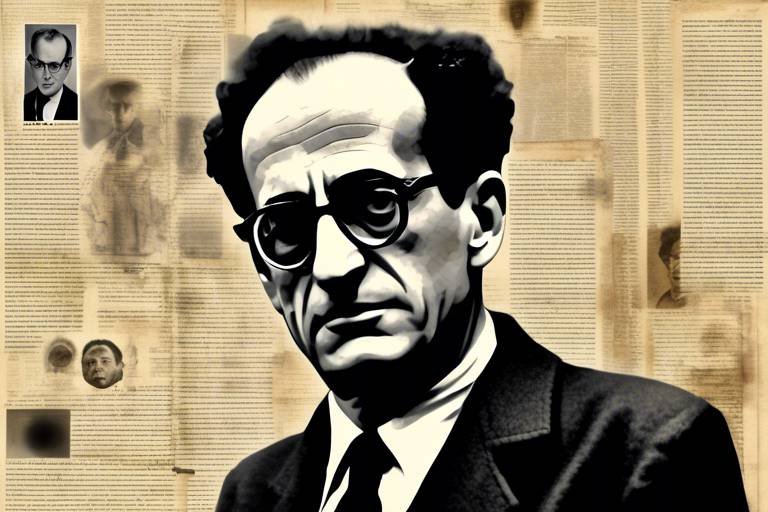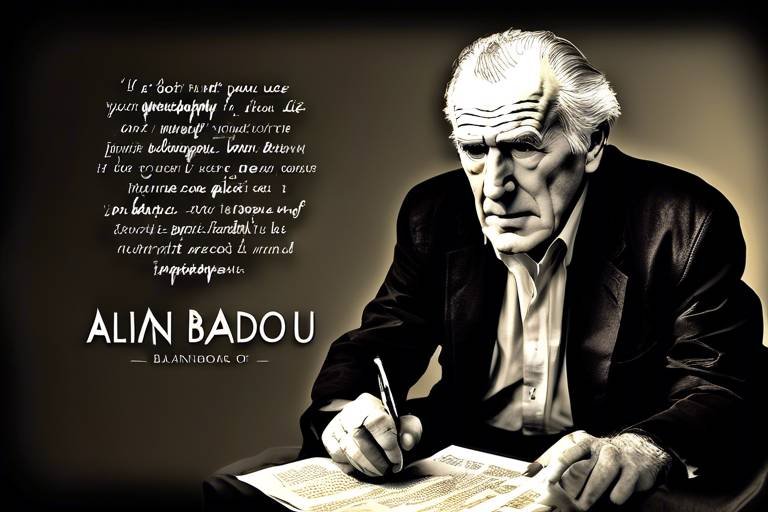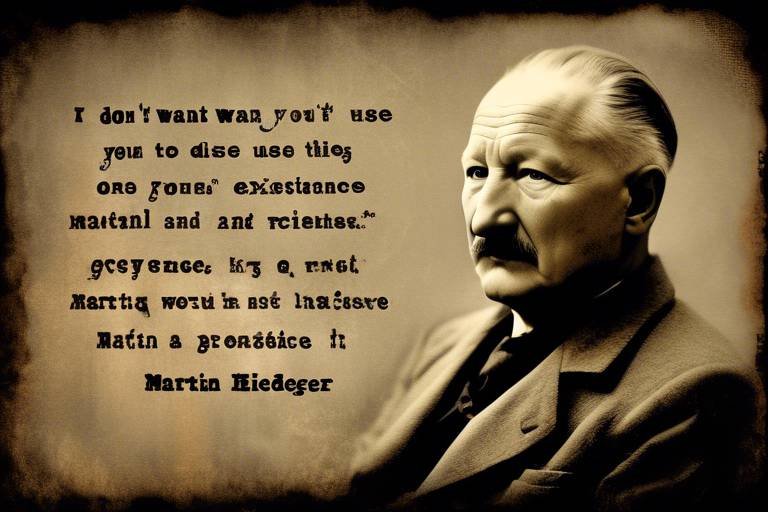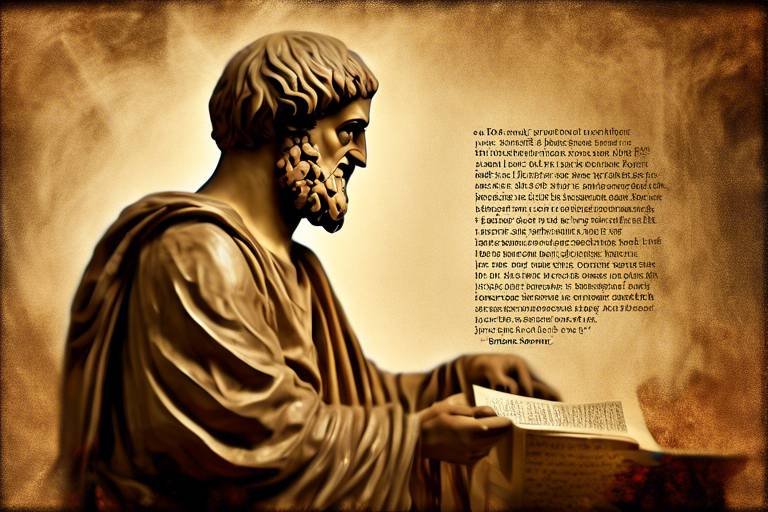Arendt, Eichmann, and the Banality of Evil - A Critical Analysis
This article explores Hannah Arendt's concept of the banality of evil through the lens of Adolf Eichmann's trial, examining the implications for understanding moral responsibility in the context of systemic atrocities.
Hannah Arendt introduced the term banality of evil in her coverage of Adolf Eichmann's trial, suggesting that heinous acts can be committed by ordinary people without deep-rooted malice. This notion challenges the traditional understanding of evil as something monstrous and aberrant. Instead, Arendt posited that evil can manifest in mundane, bureaucratic actions, performed by individuals who are simply following orders or adhering to societal norms. The origins of this concept lie in Arendt's observations of Eichmann, who appeared more as a thoughtless bureaucrat than a fanatical ideologue. This raises crucial questions about moral responsibility: if evil can be so ordinary, what does that mean for our understanding of human nature and accountability?
Adolf Eichmann was a central figure in the Holocaust, serving as one of the key architects of the Nazi regime's plan for the systematic extermination of Jews. His role primarily involved orchestrating mass deportations to concentration camps, where millions met their tragic fate. Born in 1906 in Germany, Eichmann's early life was unremarkable; he was a salesman before joining the Nazi party and later the SS. His bureaucratic efficiency and loyalty to the Nazi cause earned him a prominent position within the regime. After the war, Eichmann fled to Argentina, where he lived in obscurity until he was captured by Israeli agents in 1960. His subsequent trial in Jerusalem in 1961 became a landmark event, not just for its legal proceedings but also for the moral and ethical questions it raised about individual responsibility in the face of systemic evil.
The trial of Adolf Eichmann was not merely a legal proceeding; it was a pivotal moment in history that shaped public perception of the Holocaust. Held in 1961, it brought to light the chilling details of the Holocaust and the role that ordinary individuals played in it. The courtroom became a stage for testimonies from survivors, who recounted their harrowing experiences, juxtaposed against Eichmann's detached demeanor. His insistence that he was just "following orders" sparked intense debates about morality and complicity. The trial was broadcasted internationally, allowing audiences to witness the stark contrast between Eichmann's banality and the horror of his actions. This exposure played a significant role in shaping historical memory and understanding of the Holocaust.
The media coverage surrounding Eichmann's trial was extensive and influential. Newspapers, television, and radio broadcasts brought the trial into homes worldwide, making the Holocaust a topic of public discourse. The portrayal of Eichmann as a bureaucratic functionary rather than a monstrous villain shocked many and forced society to confront uncomfortable truths about human nature. The public reaction was profound; many grappled with the idea that someone so seemingly ordinary could be responsible for such extraordinary evil. This realization led to a broader conversation about the nature of evil and the responsibilities of individuals within oppressive systems.
Eichmann's trial raised significant legal and ethical questions regarding complicity and moral responsibility. The prosecution argued that Eichmann was not merely a cog in the machine but an active participant in the machinery of death. This led to discussions about the limits of obedience to authority and the moral obligations of individuals in the face of unjust orders. The trial highlighted the complexities of justice; can we hold individuals accountable for actions taken under a regime that dehumanizes others? These questions remain relevant today, as societies continue to grapple with issues of complicity and moral failure in various contexts.
Arendt's reflections on Eichmann's character and actions provide a profound framework for understanding moral failure in oppressive systems. She argued that Eichmann's evil was not rooted in hatred or ideology but rather in a failure to think critically about his actions. This idea resonates today, as it challenges us to reflect on our own responsibilities in the face of injustice. Are we, too, capable of committing acts of evil through inaction or blind obedience? Her insights compel us to consider the importance of critical thinking and moral reflection in our daily lives.
While Arendt's concept of the banality of evil has been influential, it has also faced significant critique. Some argue that it oversimplifies the nature of evil, reducing complex motivations and ideologies to mere bureaucratic function. Critics contend that this perspective may diminish the accountability of individuals who commit atrocities, suggesting that they are merely products of their environment. Additionally, there are concerns that Arendt's analysis does not adequately address the emotional and psychological dimensions of evil, which can include deep-seated hatred and fanaticism.
In response to these critiques, scholars have elaborated on Arendt's ideas, offering nuanced interpretations that reconcile her theories with modern understandings of evil and responsibility. Some have argued that acknowledging the banality of evil does not absolve individuals of responsibility; instead, it emphasizes the need for vigilance and moral courage in our actions. Contemporary thinkers have built upon Arendt's insights, exploring how ordinary individuals can perpetuate systems of oppression while also highlighting the importance of individual agency in resisting such systems.
The analysis of Eichmann by Hannah Arendt continues to resonate in contemporary discussions of morality and ethics. Their stories serve as a reminder of the dangers of complacency and the importance of remembering history. As we navigate complex moral landscapes today, Arendt's insights challenge us to reflect on our own roles in society and the potential for both good and evil within us. The legacy of their encounters compels us to remain vigilant, ensuring that we do not become passive participants in systems that dehumanize others.
- What does the term "banality of evil" mean? It refers to the idea that ordinary people can commit horrific acts without being inherently evil, often by simply following orders or conforming to societal norms.
- Who was Adolf Eichmann? Eichmann was a high-ranking Nazi official who played a key role in the Holocaust, responsible for organizing the mass deportation of Jews to concentration camps.
- What was significant about Eichmann's trial? The trial was pivotal in shaping public understanding of the Holocaust and raised important questions about moral responsibility and complicity in systemic evil.
- How did Hannah Arendt contribute to our understanding of evil? Arendt's analysis of Eichmann highlighted the dangers of thoughtlessness and the capacity for ordinary individuals to participate in evil acts, prompting deeper reflections on morality.

banality of evil
Hannah Arendt's concept of the is a profound and unsettling idea that challenges our understanding of morality and human behavior. It suggests that ordinary people, rather than being inherently malevolent, can commit horrific acts simply by conforming to the norms and expectations of their society. This notion emerged prominently during the trial of Adolf Eichmann, a key figure in the Holocaust, where Arendt observed that Eichmann was not a fanatical monster but rather a bureaucrat who was more concerned with following orders than the moral implications of his actions.
This observation leads us to ponder: How can someone so ordinary participate in such extraordinary evil? Arendt's analysis urges us to consider the role of systemic structures and the dangers of thoughtlessness. When individuals fail to critically engage with their actions and the consequences they entail, they can become complicit in atrocities without recognizing their moral failures. This raises essential questions about accountability and the nature of evil itself.
The implications of the banality of evil extend beyond the Holocaust, resonating in various contexts where individuals or groups commit acts of violence or oppression under the guise of duty or loyalty. It forces us to confront uncomfortable truths about our own potential for complicity in systems of injustice. As we navigate our lives, we must ask ourselves: Are we truly aware of the moral implications of our actions? Or are we, like Eichmann, merely following orders?
Adolf Eichmann, often referred to as the architect of the Holocaust, serves as a chilling case study for Arendt’s theory. Born in 1906 in Germany, Eichmann was a member of the Nazi Party and an SS officer who played a pivotal role in organizing the logistics of mass deportations of Jews to concentration camps. His bureaucratic efficiency and adherence to Nazi ideology exemplified how ordinary individuals can become agents of evil when they operate within a system that dehumanizes others.
The 1961 trial in Jerusalem was a landmark event that not only sought justice for Eichmann’s crimes but also aimed to educate the world about the Holocaust. The proceedings were meticulously documented, revealing chilling testimonies from survivors and experts alike. Eichmann’s defense, centered on the claim that he was merely following orders, sparked intense debate about moral responsibility and complicity.
The trial attracted international media attention, influencing public discourse on the Holocaust. The portrayal of Eichmann as a "banal" figure shocked many, as it contradicted the image of evil as monstrous and overtly malevolent. This media coverage played a crucial role in shaping societal understanding of both Eichmann and the concept of the banality of evil, prompting audiences to grapple with the uncomfortable reality that evil can wear a familiar face.
Eichmann's trial raised profound legal questions about complicity and moral responsibility. It forced society to confront the uncomfortable reality that individuals can be held accountable for their actions, even when those actions are carried out in service of a larger, oppressive system. The legal framework established during the trial continues to inform debates around justice and accountability in contemporary contexts.
Arendt's reflections on Eichmann's character and actions provide a framework for understanding moral failure. She posited that Eichmann's inability to think critically about his actions led to a profound moral blindness. This notion serves as a cautionary tale, reminding us of the importance of critical thinking and ethical engagement in our daily lives.
While Arendt's concept has been influential, it has also faced criticism. Detractors argue that her theory oversimplifies the nature of evil, suggesting that it can be reduced to thoughtlessness. Critics contend that this perspective undermines the complexities of human motivation and the capacity for malice that exists within individuals.
In response to criticisms, scholars have elaborated on Arendt's ideas, providing nuanced interpretations. Contemporary thinkers have explored how her theories can be reconciled with modern understandings of evil and responsibility, emphasizing the importance of context and individual agency in moral decision-making.
Arendt's analysis of Eichmann continues to resonate in discussions of morality and ethics. The lessons learned from their stories remind us of the importance of vigilance against the forces of conformity and the necessity of maintaining a critical perspective on authority and societal norms. As we reflect on history, we must strive to remember the past to prevent the repetition of such atrocities in the future.
- What is the banality of evil? - It is a concept introduced by Hannah Arendt that suggests ordinary individuals can commit heinous acts without deep-seated malice, often through conformity and thoughtlessness.
- Who was Adolf Eichmann? - Eichmann was a high-ranking Nazi official responsible for organizing the logistics of the Holocaust, and his trial highlighted the complexities of moral responsibility.
- Why is Arendt's work significant today? - Arendt's insights challenge us to consider our own moral responsibilities and the potential for complicity in systems of injustice.

through the lens of Adolf Eichmann's trial, examining the implications for understanding moral responsibility in the context of systemic atrocities.
This article explores Hannah Arendt's concept of the banality of evil through the lens of Adolf Eichmann's trial, examining the implications for understanding moral responsibility in the context of systemic atrocities.
Arendt's notion of the banality of evil suggests that ordinary individuals can commit heinous acts without deep-seated malice. This section delves into its origins and significance in moral philosophy.
Eichmann, a key architect of the Holocaust, epitomizes Arendt's theory. This section provides a brief biography, highlighting his role in orchestrating mass deportations and the subsequent trial that brought him to global attention.
The 1961 trial in Jerusalem was pivotal in shaping public perception of the Holocaust. This section discusses the trial's proceedings, key testimonies, and its impact on historical memory.
The trial attracted international media attention, influencing public discourse on the Holocaust. This subsection analyzes how media portrayal shaped societal understanding of Eichmann and the banality of evil.
Eichmann's trial raised profound legal questions about complicity and moral responsibility. This subsection examines the legal framework and ethical debates surrounding his actions and the concept of justice.
Arendt's reflections on Eichmann's character and actions provide a framework for understanding moral failure. This section explores her philosophical insights and the broader implications for human behavior in oppressive systems.
While Arendt's concept has been influential, it has also faced criticism. This section discusses various critiques, including the oversimplification of evil and the implications for accountability.
In response to criticisms, scholars have elaborated on Arendt's ideas, providing nuanced interpretations. This subsection explores how contemporary thinkers reconcile her theories with modern understandings of evil and responsibility.
Arendt's analysis of Eichmann continues to resonate in discussions of morality and ethics. This section reflects on the lasting impact of their stories on contemporary thought and the importance of remembering history.
The trial of Adolf Eichmann serves as a profound case study in understanding moral responsibility amidst systemic atrocities. Eichmann, who played a crucial role in the logistics of the Holocaust, was not a monster in the traditional sense; rather, he was a bureaucrat who executed orders with chilling efficiency. His demeanor during the trial, marked by a dispassionate and almost robotic presentation, raised important questions about the nature of evil and the capacity for ordinary people to participate in horrific acts.
At the heart of the trial was the question of moral accountability. Eichmann claimed that he was merely following orders, a defense that many found both unsettling and revealing. This leads us to ponder: can one truly absolve themselves of responsibility by claiming to be a cog in a larger machine? The implications of this argument are vast, touching on the very essence of ethical behavior within structured systems. In a world where individuals often prioritize compliance over conscience, Eichmann’s case challenges us to consider the moral weight of our choices.
Furthermore, the trial illuminated the complexities of systemic evil. It wasn't just Eichmann acting alone; he was part of a vast network that enabled the Holocaust. This raises the question: how do we hold accountable those who operate within systems that perpetuate atrocities? The implications extend beyond historical analysis; they resonate in contemporary discussions about complicity in various forms of injustice today.
To further explore these themes, let’s consider a few key points:
- Moral Responsibility: Eichmann's trial forced society to confront uncomfortable truths about individual responsibility within oppressive systems.
- Systemic Evil: The case exemplifies how ordinary people can become agents of evil when operating within bureaucratic structures.
- Legacy of Compliance: The trial serves as a cautionary tale about the dangers of blind obedience and the importance of critical moral judgment.
As we reflect on Eichmann’s trial, it becomes clear that the implications for understanding moral responsibility are profound. It challenges us to question our own actions in the face of authority and to recognize that the capacity for evil lies not only in the hearts of a few but can emerge from the collective actions of many. The lessons learned from this historical moment continue to resonate, reminding us that vigilance is necessary to prevent the repetition of such horrors.
- What is the banality of evil? The term refers to the idea that ordinary people can commit atrocious acts without malicious intent, often due to conformity and bureaucratic pressures.
- Who was Adolf Eichmann? Eichmann was a high-ranking Nazi official instrumental in the implementation of the Holocaust, particularly in organizing the logistics of mass deportations.
- Why was Eichmann's trial significant? The trial was significant as it highlighted issues of moral responsibility, complicity, and the nature of evil within systemic atrocities.
- What were the key takeaways from the trial? Key takeaways include the importance of individual moral judgment and the dangers of blind obedience to authority.

The Concept of the Banality of Evil
The term banality of evil was coined by the political theorist Hannah Arendt during her coverage of the trial of Adolf Eichmann, one of the key figures in the Holocaust. Arendt's groundbreaking idea suggests that evil can manifest not only through monstrous acts but also through the actions of ordinary individuals who fail to think critically about their responsibilities. This notion challenges the traditional understanding of evil as something that is inherently monstrous or malevolent. Instead, Arendt posits that the capacity for evil exists within the realm of the mundane, where individuals can become complicit in horrific acts simply by adhering to bureaucratic norms and societal expectations.
At the heart of Arendt's concept lies the idea that Eichmann, rather than being a fanatical monster, was an unremarkable bureaucrat who simply followed orders. He exemplified how a lack of critical thinking and moral reflection could lead to participation in systemic atrocities. This raises profound questions: How can someone so ordinary be responsible for such extraordinary evil? Are we, too, capable of such moral failure if we do not engage our conscience? Arendt's insights compel us to consider the implications of our actions and the importance of questioning authority.
Arendt's exploration of the banality of evil invites us to reflect on the following key aspects:
- Ordinary Individuals: The idea that anyone can become a perpetrator of evil under certain conditions, particularly when they are embedded in bureaucratic systems.
- Failure to Think: The emphasis on the necessity of critical thinking and moral reflection in preventing complicity in evil acts.
- Systemic Atrocities: Understanding how societal structures can facilitate and normalize evil behaviors.
By examining the banality of evil, Arendt challenges us to confront uncomfortable truths about human nature. It serves as a reminder that we must remain vigilant, questioning not just the actions of others but also our own roles within larger systems. The implications of this concept extend beyond historical events; they resonate in contemporary discussions about morality, ethics, and responsibility in our increasingly complex world.
As we navigate our daily lives, the lessons from Arendt's analysis urge us to cultivate a sense of moral responsibility. The banality of evil is not merely a historical observation; it is a call to action. It implores us to be aware of the systems we inhabit and to recognize our potential for complicity. In doing so, we can strive to create a society that values critical thinking and ethical reflection, ensuring that history does not repeat itself.

Adolf Eichmann: A Historical Overview
Adolf Eichmann, often referred to as one of the principal architects of the Holocaust, was a figure whose actions reverberate through history, illustrating the chilling potential of ordinary individuals to participate in systemic atrocities. Born on March 19, 1906, in Solingen, Germany, Eichmann's early life was unremarkable; however, his career took a dramatic turn when he joined the Nazi Party in 1932. This decision set him on a path that would lead to his pivotal role in the implementation of the Final Solution, the Nazi plan to exterminate the Jewish population of Europe.
Eichmann's rise within the ranks of the SS (Schutzstaffel) showcased his bureaucratic efficiency and organizational skills. By 1941, he was appointed head of the Jewish Section of the Gestapo, where he was tasked with coordinating the logistics of mass deportations. His role was not merely administrative; he was deeply involved in the planning and execution of actions that would lead to the deaths of millions. Eichmann's infamous quote, "I was just following orders," encapsulates his defense during his trial, highlighting the disturbing notion that he viewed his actions as mere duties rather than moral choices.
After the war, Eichmann evaded capture for several years, managing to escape to Argentina under a false identity. It wasn't until 1960 that he was apprehended by Israeli agents, who tracked him down in Buenos Aires. His subsequent trial in Jerusalem in 1961 became a landmark event, not just for its legal implications but also for its role in shaping global consciousness about the Holocaust. The trial was a public spectacle, bringing forth harrowing testimonies from survivors and shedding light on the bureaucratic machinery that facilitated genocide.
During the trial, Eichmann presented himself as a banal bureaucrat, a man who claimed he was merely executing orders from his superiors. This portrayal shocked many, as it contradicted the expectation of a monstrous figure. Instead, Eichmann appeared as an ordinary man, further emphasizing Hannah Arendt's concept of the banality of evil. The trial revealed the complexities of moral responsibility in the context of systemic evil, forcing society to confront uncomfortable truths about complicity and the nature of human behavior under oppressive regimes.
In summary, Eichmann's life story serves as a stark reminder of how ordinary individuals can become agents of extraordinary evil. His trial not only brought justice to the victims of the Holocaust but also ignited critical discussions about morality, responsibility, and the mechanisms of evil in society. The implications of his actions and the subsequent trial continue to resonate, urging us to reflect on our own responsibilities in the face of injustice.

The Trial of Adolf Eichmann
The trial of Adolf Eichmann, held in Jerusalem in 1961, marked a significant moment in the historical narrative surrounding the Holocaust and the broader implications of moral responsibility. Eichmann, who was instrumental in the logistics of the Holocaust, was captured in Argentina and brought to justice in a trial that would not only scrutinize his actions but also provoke intense global debate about the nature of evil and complicity in systematic atrocities. The proceedings were both a legal spectacle and a profound moral inquiry, drawing attention from around the world.
During the trial, Eichmann's demeanor was strikingly ordinary, which led to Hannah Arendt's famous characterization of him as a representation of the "banality of evil." Rather than presenting himself as a monstrous figure filled with hatred, Eichmann appeared more like a bureaucrat, emphasizing his role as an obedient functionary within a vast and horrific system. This portrayal raised critical questions about the nature of evil: Can one be a perpetrator of heinous acts without being inherently evil? The trial unfolded through a series of testimonies that highlighted the systematic nature of the Holocaust, revealing the chilling efficiency with which Eichmann and others executed their roles.
Key testimonies during the trial came from Holocaust survivors, who shared harrowing accounts of their experiences. These narratives were not just personal stories; they served as powerful reminders of the human cost of bureaucratic indifference. The emotional weight of these testimonies contrasted sharply with Eichmann's clinical responses, creating a dissonance that captivated the audience and underscored the moral implications of his actions.
In addition to survivor testimonies, the prosecution presented a wealth of documentation that detailed Eichmann's involvement in the logistics of mass deportations. This evidence painted a picture of a man deeply embedded in the machinery of genocide, raising questions about individual accountability within a system designed for mass extermination. The trial also featured the defense's argument that Eichmann was merely following orders, a claim that sparked intense debate about the limits of obedience and the responsibilities of individuals in the face of immoral commands.
The impact of the trial extended far beyond the courtroom. It played a crucial role in shaping public perception of the Holocaust and the moral complexities surrounding it. For many, the trial was an awakening, prompting a reevaluation of how societies remember and confront their pasts. The media coverage was extensive, with journalists from around the world providing updates and analysis, further amplifying the trial's significance in the global consciousness.
Ultimately, the trial of Adolf Eichmann was not just about one man’s actions but rather a reflection of a larger human dilemma. It forced society to grapple with uncomfortable truths about complicity, morality, and the capacity for ordinary people to participate in extraordinary evil. As we reflect on the proceedings and their implications, we are reminded of the importance of vigilance against the forces of hatred and indifference that can arise in any society.

Media Coverage and Public Reaction
The trial of Adolf Eichmann in 1961 marked a turning point in how the Holocaust was perceived globally, largely thanks to extensive media coverage. This was not just any trial; it was a spectacle that brought the horrors of the Holocaust into living rooms around the world. Newspapers, radio, and television became the primary channels through which the public engaged with the proceedings, transforming Eichmann into a household name. The media played a crucial role in shaping the narrative, often portraying Eichmann as the archetypal 'banal' bureaucrat—an ordinary man who committed extraordinary evil.
One of the most striking aspects of the media coverage was its ability to humanize Eichmann, making him seem less like a monster and more like a cog in a vast bureaucratic machine. This portrayal raised questions about the nature of evil itself. Was Eichmann truly evil, or was he merely a product of his environment? The media's framing of Eichmann as a 'desk murderer' led to a profound public reaction, prompting many to grapple with the uncomfortable reality that ordinary people could participate in horrific acts without overt malice.
As audiences watched the trial unfold, they were confronted with the chilling testimony of Holocaust survivors, which provided a stark contrast to Eichmann's unemotional demeanor. The juxtaposition of personal stories against Eichmann's bureaucratic indifference sparked outrage and compassion, leading to a complex emotional response from the public. Many were left wondering how such atrocities could occur, especially when perpetrated by someone who appeared so mundane.
The media's role extended beyond mere reporting; it actively shaped public discourse surrounding the Holocaust. Editorials and opinion pieces began to emerge, exploring themes of complicity, guilt, and moral responsibility. This engagement led to a broader societal reckoning with the past, as people began to question not just Eichmann's actions, but also their own roles in systems of oppression.
Moreover, the trial's televised broadcasts attracted millions of viewers, making it one of the first major trials to be covered live on such a scale. This unprecedented access allowed the public to witness the proceedings in real-time, fostering a sense of collective memory that would influence future generations. The emotional weight of survivor testimonies, coupled with Eichmann's detached responses, created a powerful narrative that resonated deeply with audiences.
In summary, the media coverage of Eichmann's trial did more than inform the public; it provoked a profound reflection on the nature of evil, responsibility, and the capacity for ordinary individuals to commit atrocious acts. The public reaction was not just one of shock and horror, but also of introspection, as people began to understand that the banality of evil could exist within themselves and their societies. This realization continues to echo in contemporary discussions about morality and ethics, reminding us of the importance of vigilance in the face of systemic injustices.
- What is the banality of evil? The banality of evil is a concept introduced by Hannah Arendt, suggesting that ordinary people can commit horrific acts simply by conforming to the norms of their society or following orders, without deep-seated malice.
- Who was Adolf Eichmann? Adolf Eichmann was a high-ranking Nazi official who played a key role in organizing the logistics of the Holocaust, including the mass deportation of Jews to concentration camps.
- Why was Eichmann's trial important? Eichmann's trial was significant because it brought attention to the Holocaust, challenged perceptions of evil, and raised important questions about moral responsibility and complicity in systemic atrocities.
- How did the media influence public perception of the trial? The media's extensive coverage humanized Eichmann, shaped narratives around the Holocaust, and sparked public discourse about morality, complicity, and the nature of evil.

Legal and Ethical Implications
The trial of Adolf Eichmann not only served as a platform for examining individual guilt but also raised profound questions about legal responsibility and the ethical dimensions of complicity in systemic atrocities. At the heart of the trial was the debate over whether Eichmann, as a bureaucrat executing orders, could be held accountable for his actions. This notion challenges the traditional understanding of culpability, suggesting that individuals operating within a larger, dehumanizing system might act without personal malice.
One of the most striking elements of Eichmann's defense was his claim that he was merely following orders. This defense, while historically common, ignited discussions about the Nuremberg Principles, which established that following orders is not a valid excuse for committing war crimes. The legal framework established during the Nuremberg Trials emphasized that individuals have a moral duty to oppose unlawful orders. This principle was put to the test during Eichmann's trial, as the court grappled with the implications of bureaucratic obedience in the face of overwhelming evil.
Furthermore, the trial illuminated the complexities of moral responsibility in a system that normalized brutality. Eichmann’s actions exemplified how ordinary individuals could become agents of horrific policies, raising the question: to what extent is an individual responsible for their actions when they are part of a larger machinery of oppression? This dilemma invites us to consider the ethical implications of our own roles within societal structures, prompting a reflection on personal accountability.
In examining the legal and ethical implications of Eichmann's actions, several key points emerge:
- Complicity and Accountability: The trial underscored the importance of recognizing complicity in systemic evil, challenging the notion that individuals can absolve themselves of guilt by citing their roles as mere cogs in the machine.
- Legal Precedents: Eichmann's trial set crucial precedents in international law regarding the prosecution of crimes against humanity, influencing how future cases are approached.
- Ethical Responsibility: The trial prompted a reevaluation of ethical responsibility, emphasizing that individuals must question and resist immoral directives.
Moreover, the trial raised questions about the adequacy of existing legal frameworks to address the complexities of modern warfare and genocide. As the world continues to grapple with issues of genocide and crimes against humanity, the lessons learned from Eichmann's trial remain relevant. The legal and ethical discussions initiated during this pivotal moment in history continue to resonate, urging us to reflect on our own moral compasses and the structures within which we operate.
In conclusion, the legal and ethical implications of Eichmann's trial extend far beyond the courtroom. They challenge us to consider our responsibilities as individuals within systems that may perpetuate evil. As we navigate the complexities of modern life, the legacy of Eichmann and the questions raised during his trial serve as a poignant reminder of the importance of moral vigilance and accountability.
- What was the main argument of Eichmann's defense during the trial? Eichmann claimed that he was simply following orders, which sparked a debate about the limits of this defense in the context of moral responsibility.
- How did the trial influence international law? The trial established important precedents regarding the prosecution of crimes against humanity and emphasized the need for individual accountability.
- What is the significance of the term "banality of evil"? The term describes how ordinary individuals can commit heinous acts without deep malice, highlighting the dangers of unthinking conformity within oppressive systems.

Hannah Arendt's Philosophical Insights
Hannah Arendt's exploration of Adolf Eichmann's character and actions during his trial is a profound contribution to understanding moral failure in the context of systemic evil. Her observations reveal a startling truth: that the capacity for evil is not always rooted in monstrous intentions but can emerge from a lack of critical thought and a failure to engage with the moral implications of one's actions. This leads us to consider the concept of thoughtlessness, a term Arendt uses to describe Eichmann's bureaucratic demeanor. He was not a fanatical ideologue; rather, he was a man who simply followed orders without questioning their morality.
Arendt famously remarked that Eichmann was "neither perverse nor sadistic," but rather "terribly and terrifyingly normal." This statement challenges our conventional notions of evil, suggesting that it can manifest in the most ordinary of individuals. In this light, the banality of evil becomes a cautionary tale about the dangers of conformity and the abdication of personal responsibility. When individuals become mere cogs in a bureaucratic machine, they can commit atrocities without a second thought, as their actions are stripped of moral context.
Moreover, Arendt's insights extend beyond Eichmann's trial; they serve as a lens through which we can examine contemporary issues of moral responsibility. In our increasingly complex world, where systems often obscure individual accountability, her work prompts us to ask critical questions: Are we, too, complicit in the evils of our time? Do we allow ourselves to be swept away by the currents of societal norms without questioning their ethical implications? Arendt's philosophy urges us to engage actively with our moral responsibilities, emphasizing that the failure to think critically can lead to devastating consequences.
Arendt's reflections also invite us to consider the role of judgment in our lives. She believed that the ability to think from the standpoint of others is crucial for moral decision-making. This idea resonates deeply in today's globalized society, where actions taken by individuals can have far-reaching effects. By fostering empathy and understanding, we can combat the thoughtlessness that often accompanies systemic injustices. Arendt’s call to cultivate a reflective mindset is not just relevant to historical atrocities; it is a timeless reminder that we must remain vigilant in our moral reasoning.
Ultimately, Arendt's philosophical insights challenge us to confront uncomfortable truths about human nature. They compel us to recognize that evil can exist in the absence of malevolence, and that ordinary people, when disengaged from ethical considerations, can participate in horrific acts. As we reflect on her work, we are reminded of the importance of critical thought and moral engagement in our lives, ensuring that we do not become unwitting participants in the banality of evil.

Critiques of Arendt's Theory
Hannah Arendt's concept of the banality of evil has sparked considerable debate among scholars, philosophers, and the general public alike. While many appreciate her groundbreaking insights into how ordinary people can commit atrocious acts, others argue that her theory may oversimplify the complexities of human behavior in extreme situations. Critics often point out that labeling Eichmann as merely a bureaucrat, devoid of deep-seated malice, risks minimizing the profound moral choices individuals face, even within oppressive systems.
One of the central critiques is that Arendt's theory might inadvertently absolve individuals of their moral responsibility. If evil is merely a product of thoughtlessness and bureaucratic function, does this imply that individuals are not accountable for their actions? This perspective raises uncomfortable questions about the nature of moral agency. Critics argue that by portraying Eichmann as a cog in the Nazi machine, Arendt's analysis could lead to a dangerous precedent where individuals might justify their complicity in systemic atrocities by claiming ignorance or a lack of personal malevolence.
Furthermore, some scholars contend that Arendt's focus on the ordinary nature of evil overlooks the psychological and ideological motivations that drive individuals to commit such acts. For instance, the role of ideology in shaping beliefs and actions cannot be dismissed. Eichmann was not just a passive participant; he actively embraced Nazi ideology, which shaped his worldview and justified his actions. Critics argue that this aspect of his character is crucial for understanding the full scope of his moral failure.
Moreover, Arendt's portrayal of Eichmann has been seen as somewhat detached. Her analysis, while intellectually rigorous, lacks an emotional depth that many believe is necessary when discussing the Holocaust and similar atrocities. The human capacity for cruelty, they argue, cannot be fully understood through a purely philosophical lens. The narratives of victims and survivors, which are often laden with emotion and personal experience, provide essential context that Arendt's theory may overlook.
To illustrate some of these critiques, consider the following table that summarizes key points of contention surrounding Arendt's theory:
| Critique | Description |
|---|---|
| Oversimplification of Evil | Reduces complex motivations to mere thoughtlessness, potentially absolving individuals of moral responsibility. |
| Neglect of Ideology | Fails to account for the psychological and ideological factors that drive individuals to commit evil acts. |
| Lack of Emotional Depth | Offers a detached analysis that may overlook the personal narratives of victims and survivors. |
Despite these critiques, Arendt's ideas remain influential, prompting ongoing discussions about moral responsibility, complicity, and the nature of evil. Scholars continue to engage with her work, seeking to reconcile her insights with contemporary understandings of human behavior in the context of systemic oppression. This dialogue is essential, as it not only honors the memory of those who suffered but also challenges us to reflect on our own moral choices in the face of injustice.
- What is the banality of evil? The term refers to the idea that ordinary individuals can commit horrific acts without deep-seated malice, often due to thoughtlessness or adherence to authority.
- Who was Adolf Eichmann? Eichmann was a Nazi official instrumental in organizing the logistics of the Holocaust, and he was tried in Jerusalem in 1961.
- What are some critiques of Arendt's theory? Critics argue that her theory oversimplifies evil, neglects ideological motivations, and lacks emotional depth in its analysis.
- Why is Arendt's analysis still relevant today? Her insights continue to provoke discussions about moral responsibility, complicity, and the nature of evil in modern contexts.

Responses to Critiques
In the wake of Hannah Arendt's thought-provoking analysis of Adolf Eichmann and the banality of evil, numerous critiques have emerged, questioning the depth and implications of her assertions. Critics argue that her theory, while groundbreaking, may oversimplify the complexities of evil and moral responsibility. However, scholars and philosophers have risen to the occasion, offering nuanced interpretations that seek to reconcile Arendt's ideas with our evolving understanding of human behavior.
One significant response to the critiques centers around the idea that Arendt did not intend to absolve Eichmann or others like him of their moral culpability. Instead, she aimed to highlight how ordinary individuals can become complicit in systemic atrocities through a failure of imagination and moral judgment. This perspective is crucial as it emphasizes the potential for anyone to slip into moral indifference when confronted with bureaucratic mechanisms that dehumanize victims.
Moreover, contemporary thinkers have expanded upon Arendt's original concepts, integrating insights from psychology and sociology to paint a more comprehensive picture of evil. For instance, they explore the role of social conformity and group dynamics in shaping individual actions. This is particularly relevant in understanding how people can participate in or turn a blind eye to atrocities when they perceive themselves as merely following orders or adhering to societal norms.
Additionally, some scholars have introduced the concept of moral disengagement, which refers to the cognitive processes that allow individuals to distance themselves from the consequences of their actions. This concept aligns with Arendt's observations about Eichmann, who often portrayed himself as a mere functionary within a larger system, thereby diminishing his personal accountability. By examining moral disengagement, researchers provide a richer framework for understanding how ordinary people can commit extraordinary evils without the overt malice one might expect.
To illustrate the evolution of Arendt's ideas in contemporary discourse, here’s a brief table summarizing key responses from modern scholars:
| Scholar | Response to Arendt | Key Concepts |
|---|---|---|
| Stanley Milgram | Explored obedience to authority | Obedience, Authority, Moral Disengagement |
| Philip Zimbardo | Examined situational influences on behavior | Situational Ethics, Deindividuation |
| John Stuart Mill | Discussed utilitarian perspectives on morality | Utilitarianism, Consequentialism |
Through these discussions, it becomes evident that Arendt's work has not only sparked debate but has also paved the way for deeper inquiries into the nature of evil and moral responsibility. Her insights continue to resonate, reminding us of the critical importance of vigilance in our moral choices. As we navigate a world still grappling with systemic injustices, her reflections urge us to remain aware of our own potential for complicity.
- What is the banality of evil? The banality of evil is a concept introduced by Hannah Arendt, suggesting that ordinary people can commit horrific acts without deep-seated malice, often due to conformity and bureaucratic processes.
- Who was Adolf Eichmann? Adolf Eichmann was a Nazi official instrumental in the logistics of the Holocaust, responsible for the mass deportation of Jews to concentration camps.
- What was the significance of Eichmann's trial? Eichmann's trial was pivotal in shaping public understanding of the Holocaust and highlighted the complexities of moral responsibility in the context of systemic evil.
- How have modern scholars responded to Arendt's critiques? Modern scholars have expanded on Arendt's ideas, incorporating psychological concepts like moral disengagement and examining the role of social dynamics in moral decision-making.

The Legacy of Arendt and Eichmann
The legacies of Hannah Arendt and Adolf Eichmann are inextricably linked, creating a complex tapestry of moral philosophy and historical memory that continues to provoke thought and discussion today. Arendt's concept of the banality of evil serves as a lens through which we can examine the nature of human behavior in the face of systemic atrocities. Her observations about Eichmann, who was a seemingly ordinary bureaucrat, challenged the traditional notions of evil as something monstrous or inherently malicious. Instead, she suggested that evil could manifest in the mundane actions of everyday people who blindly follow orders, raising unsettling questions about moral responsibility.
Arendt's reflections have left an indelible mark on the fields of ethics and political philosophy. She urged us to confront uncomfortable truths about our own capacities for complicity in systems of oppression. This notion resonates strongly in contemporary discussions about authoritarianism, where individuals often find themselves caught in a web of institutionalized wrongdoing. Arendt's insights remind us that the potential for evil exists not just in the actions of a few, but within all of us, particularly when we fail to engage critically with our surroundings.
On the other hand, Eichmann's legacy serves as a stark reminder of the consequences of moral disengagement. His trial revealed how an individual could become an instrument of mass murder while perceiving himself as a mere cog in the bureaucratic machine. This raises profound questions about accountability: How responsible are we for the actions we take under authority? The dichotomy between personal agency and systemic pressure continues to be a relevant discussion in modern ethical debates.
As we reflect on the legacies of Arendt and Eichmann, it is essential to consider the implications for contemporary society. Their stories challenge us to engage in critical self-reflection and to take an active stance against injustice. The lessons learned from their lives and the trial are not merely historical; they are urgent calls to action. We must remember that history has a tendency to repeat itself, and the seeds of evil can sprout in the most unsuspecting places if we remain passive.
In addition to philosophical discussions, the legacy of Arendt and Eichmann has also influenced various fields, including literature, psychology, and political science. Their interplay has inspired numerous works that grapple with the complexities of human behavior in the face of moral crises. The following table highlights some notable works and their contributions to understanding the legacy of Arendt and Eichmann:
| Title | Author | Contribution |
|---|---|---|
| The Origins of Totalitarianism | Hannah Arendt | Explores the rise of totalitarian regimes and the conditions that allow evil to flourish. |
| Eichmann in Jerusalem | Hannah Arendt | Introduces the concept of the banality of evil through Eichmann's trial. |
| Ordinary Men | Christopher Browning | Examines how ordinary individuals became perpetrators of the Holocaust. |
| On Evil | Arthur Koestler | Discusses the nature of evil and its manifestations in society. |
Ultimately, the legacy of Arendt and Eichmann serves as a powerful reminder of the importance of vigilance and moral courage. Their stories compel us to question our own roles within societal structures and to recognize that the fight against evil begins with individual responsibility. As we navigate the complexities of modern life, let us carry forward the lessons learned from their experiences, ensuring that we never forget the profound implications of their legacies.
- What is the 'banality of evil'? It is a concept introduced by Hannah Arendt, suggesting that ordinary people can commit horrific acts without deep-seated malice, often due to blind obedience to authority.
- Why is Eichmann's trial significant? The trial highlighted the dangers of moral disengagement and the complexities of individual responsibility in the face of systemic evil.
- How does Arendt's work apply to modern society? Arendt's insights urge us to remain vigilant against authoritarianism and to engage critically with our moral responsibilities.
Frequently Asked Questions
- What is the banality of evil?
The banality of evil is a concept introduced by Hannah Arendt, suggesting that ordinary people can commit atrocious acts not out of deep-seated malice, but rather through thoughtlessness and conformity. This idea challenges the notion that only inherently evil individuals can perpetrate such acts, highlighting how systemic issues can lead to moral failures.
- Who was Adolf Eichmann and what was his role in the Holocaust?
Adolf Eichmann was a high-ranking Nazi official who played a crucial role in the logistics of the Holocaust, particularly in organizing the mass deportation of Jews to concentration camps. His actions during World War II exemplify Arendt's theory, as he appeared to carry out his duties with a disturbing detachment, lacking any visible malice.
- What was significant about Eichmann's trial in 1961?
The trial of Adolf Eichmann in Jerusalem was significant as it brought to light the horrors of the Holocaust and the mechanisms of genocide. It was one of the first trials to be televised, which helped shape public perception and understanding of the Holocaust, as well as the nature of evil and moral responsibility.
- How did media coverage impact public perception of the trial?
Media coverage of Eichmann's trial played a pivotal role in shaping public discourse around the Holocaust. The way Eichmann was portrayed—as a bureaucrat rather than a monster—sparked debates about the nature of evil and the responsibility of individuals within oppressive systems. This coverage helped to humanize the victims while complicating the narrative of the perpetrators.
- What legal and ethical questions did Eichmann's trial raise?
Eichmann's trial raised profound legal questions about complicity, justice, and moral responsibility. It challenged the legal frameworks of the time regarding accountability, particularly in cases where individuals claimed they were merely following orders. This trial became a cornerstone for discussions on international law and human rights.
- What are some critiques of Arendt's theory?
Arendt's concept of the banality of evil has faced criticism for potentially oversimplifying the nature of evil and downplaying the complexities of moral accountability. Critics argue that it may excuse individuals from their actions by attributing them to thoughtlessness rather than intentional wrongdoing.
- How have scholars responded to critiques of Arendt's ideas?
In response to critiques, scholars have elaborated on Arendt's ideas, providing more nuanced interpretations that consider the complexities of human behavior within oppressive systems. They explore how her theories can be reconciled with contemporary understandings of evil, responsibility, and moral agency.
- What is the legacy of Arendt and Eichmann today?
The legacy of Hannah Arendt and Adolf Eichmann continues to resonate in discussions about morality, ethics, and the nature of evil. Their stories prompt ongoing reflection on the importance of remembering history and understanding the mechanisms through which ordinary individuals can commit extraordinary wrongs.



















